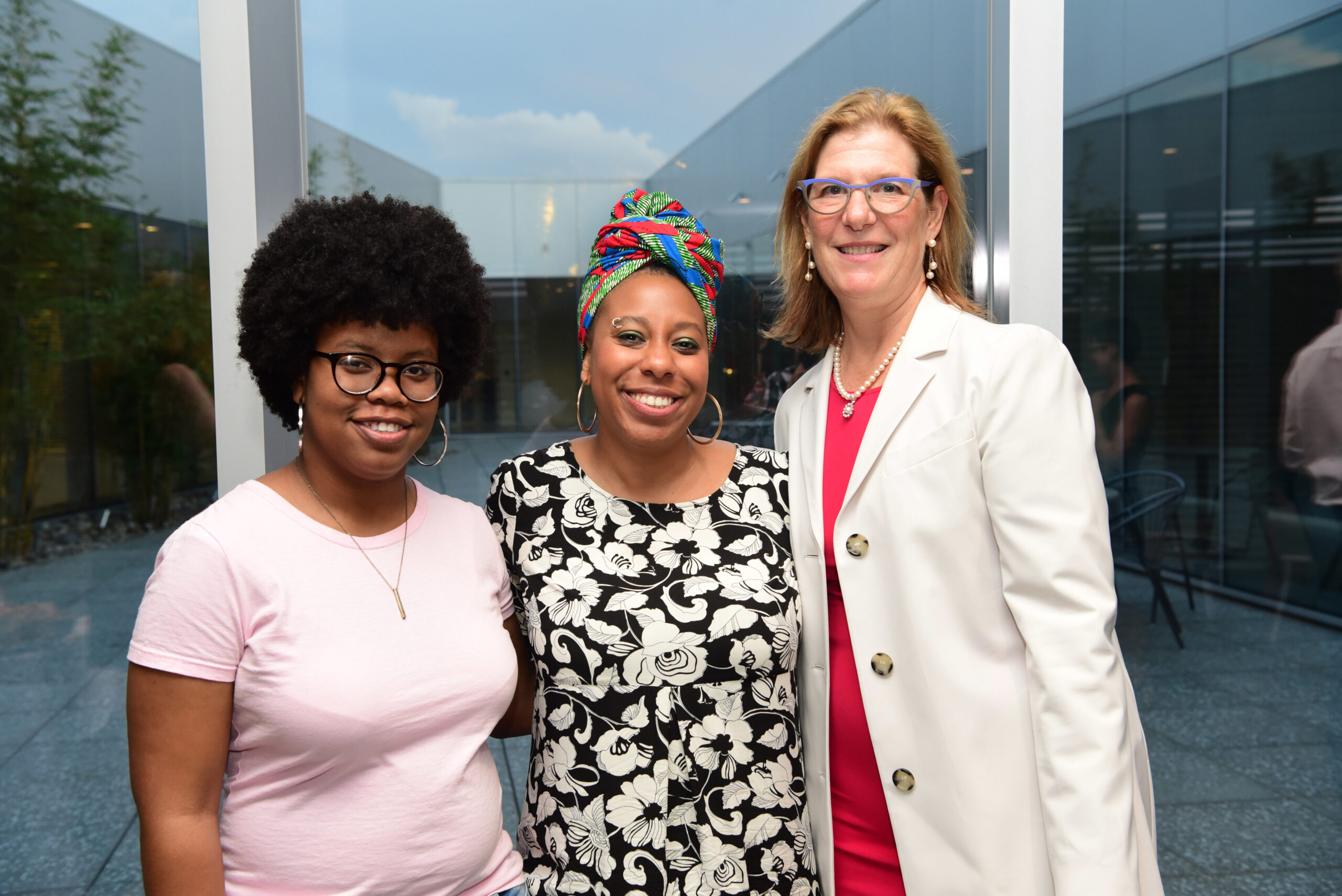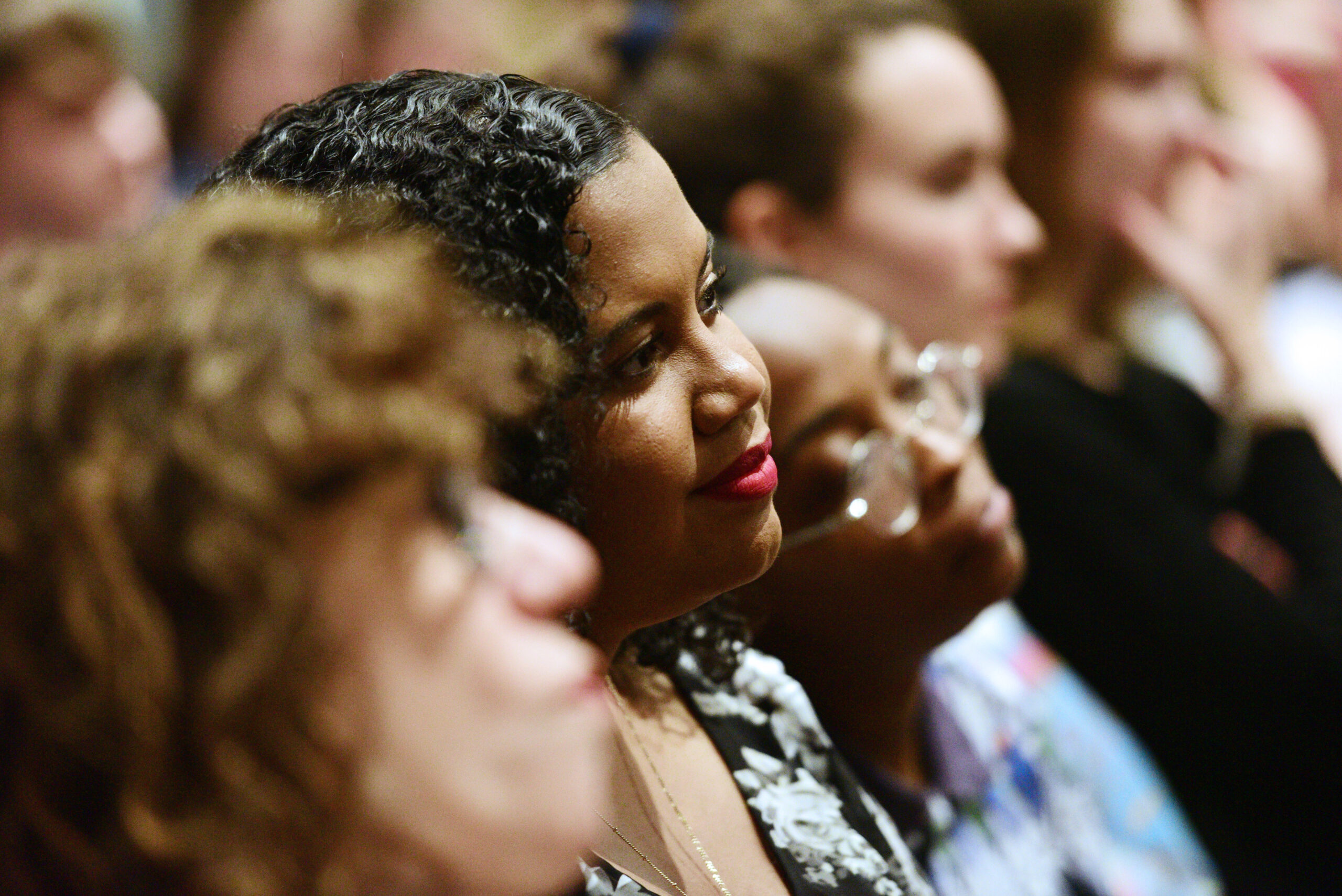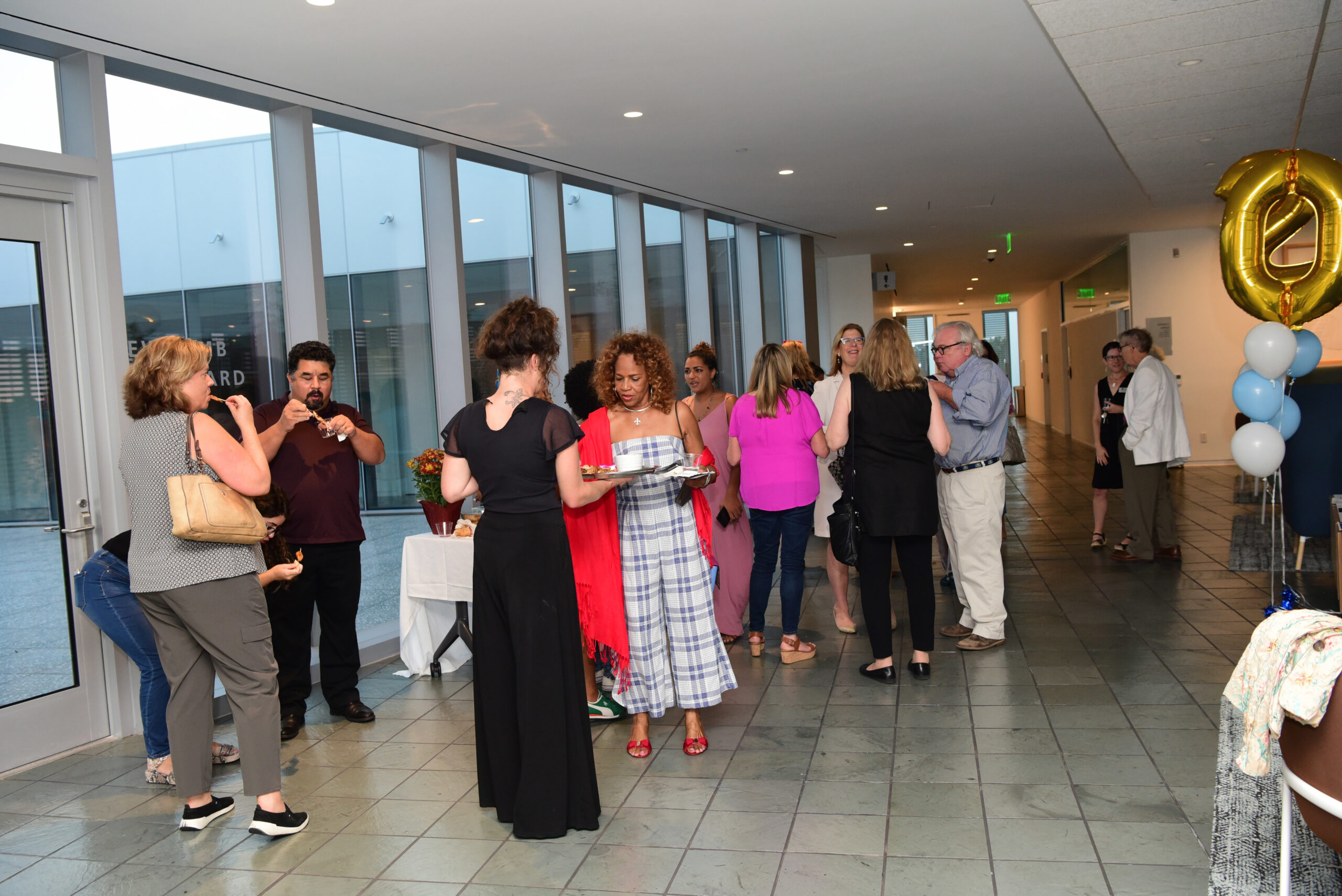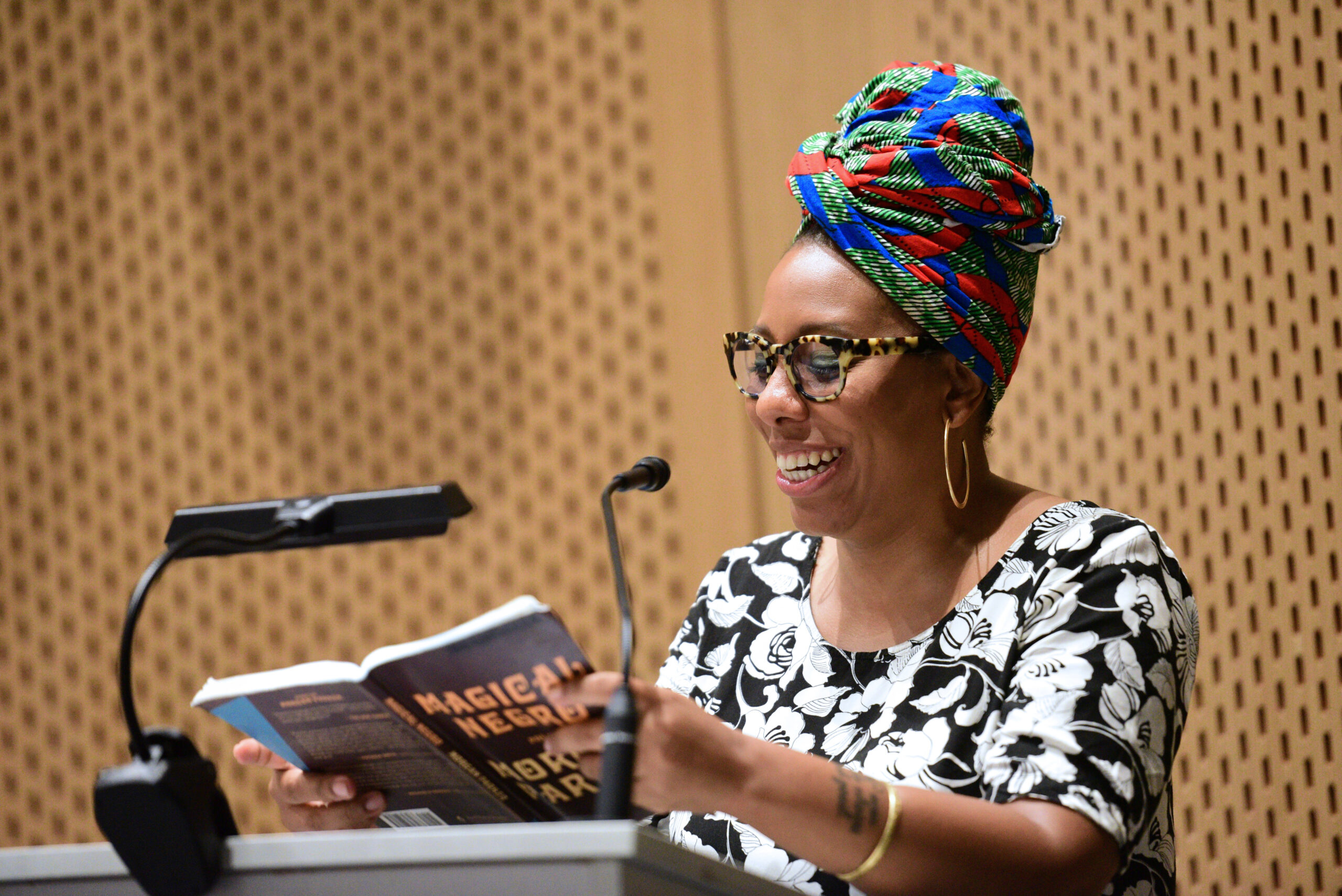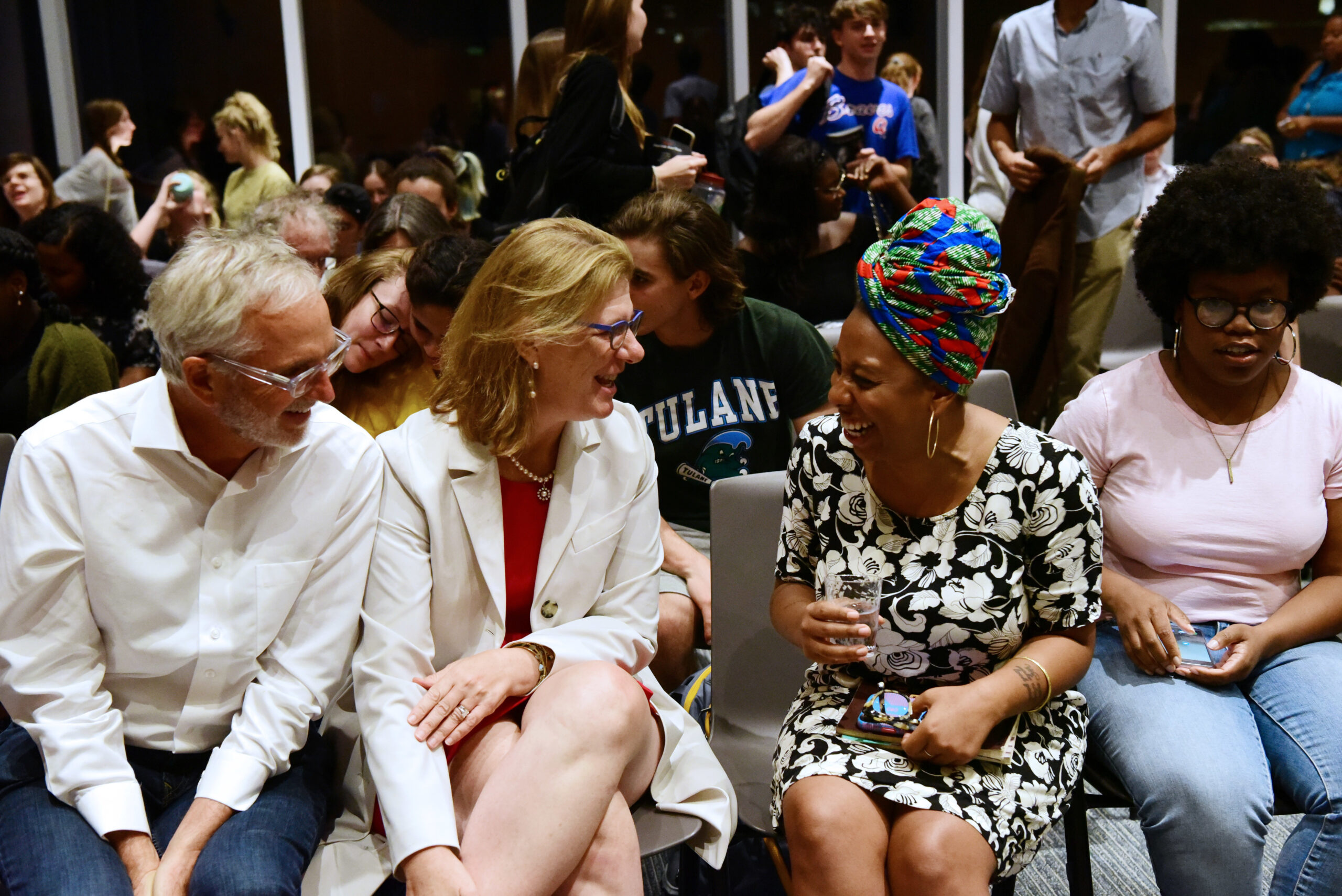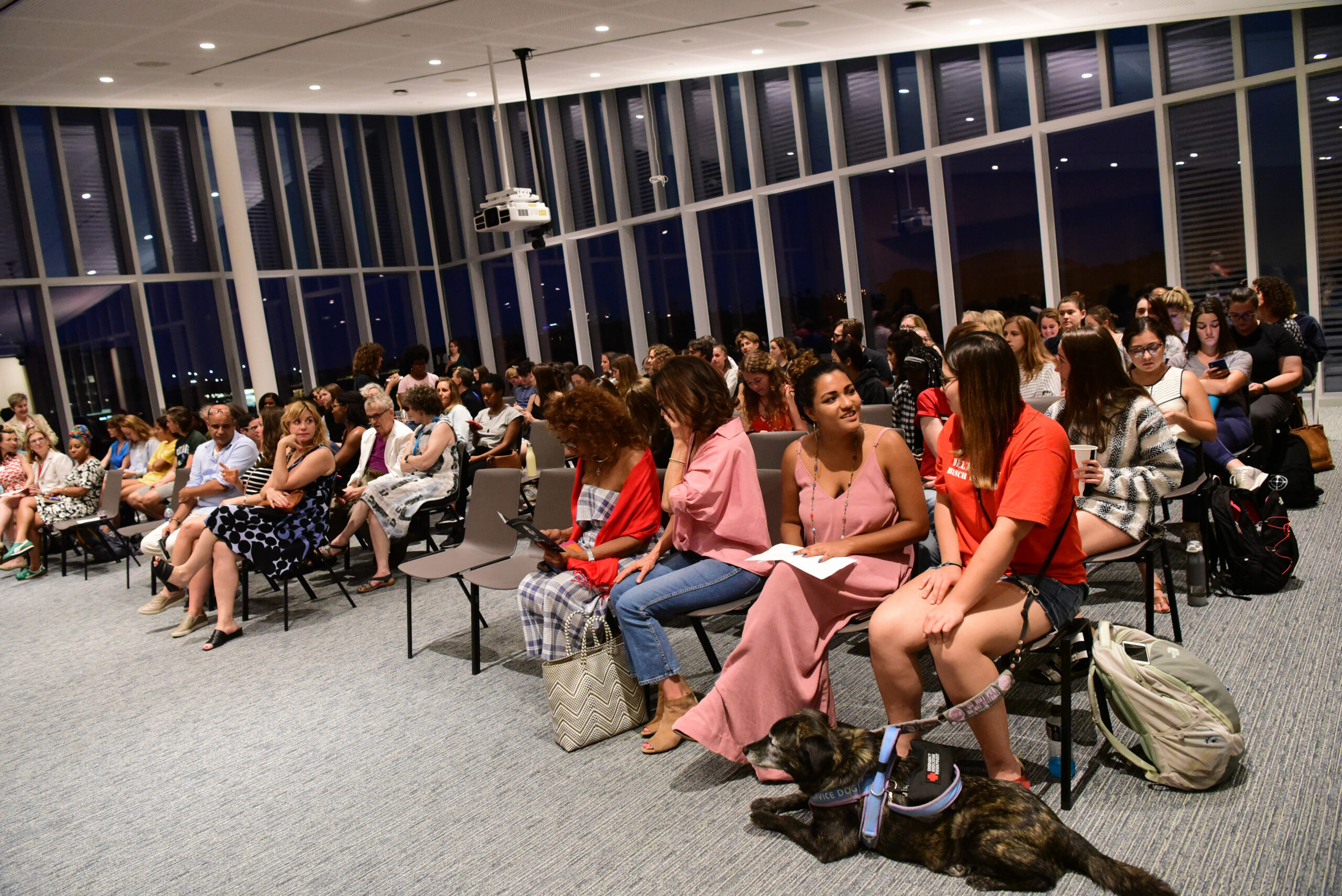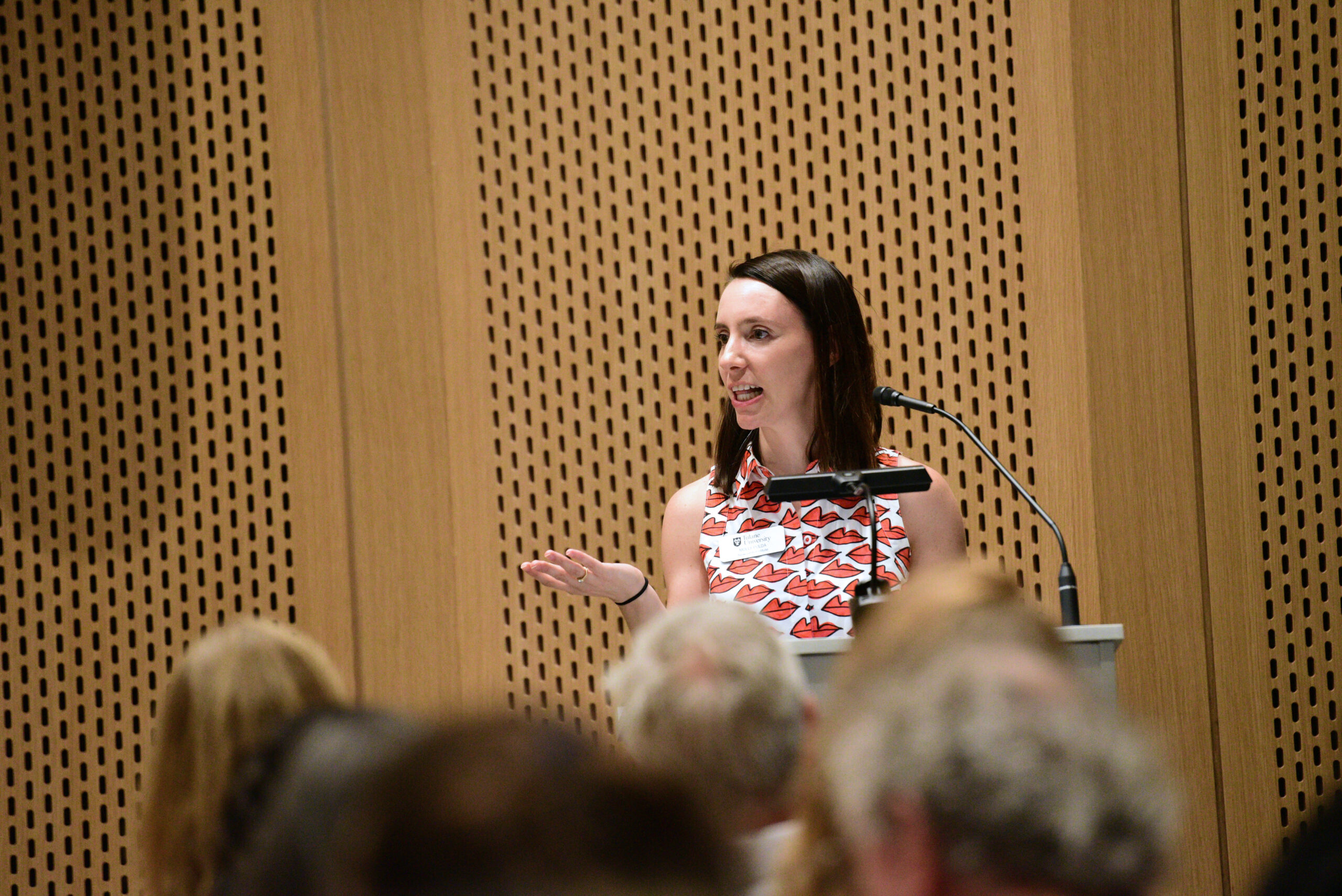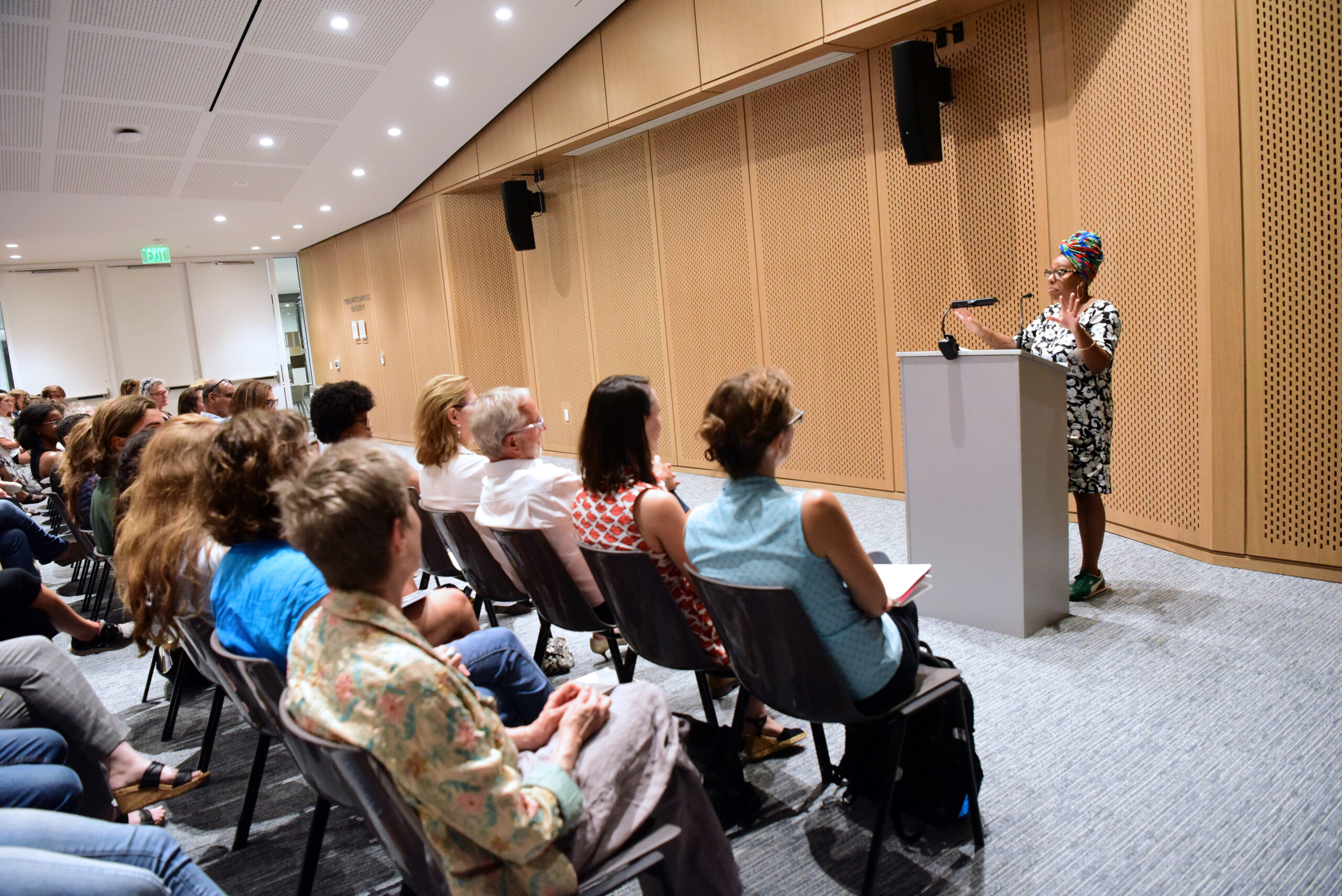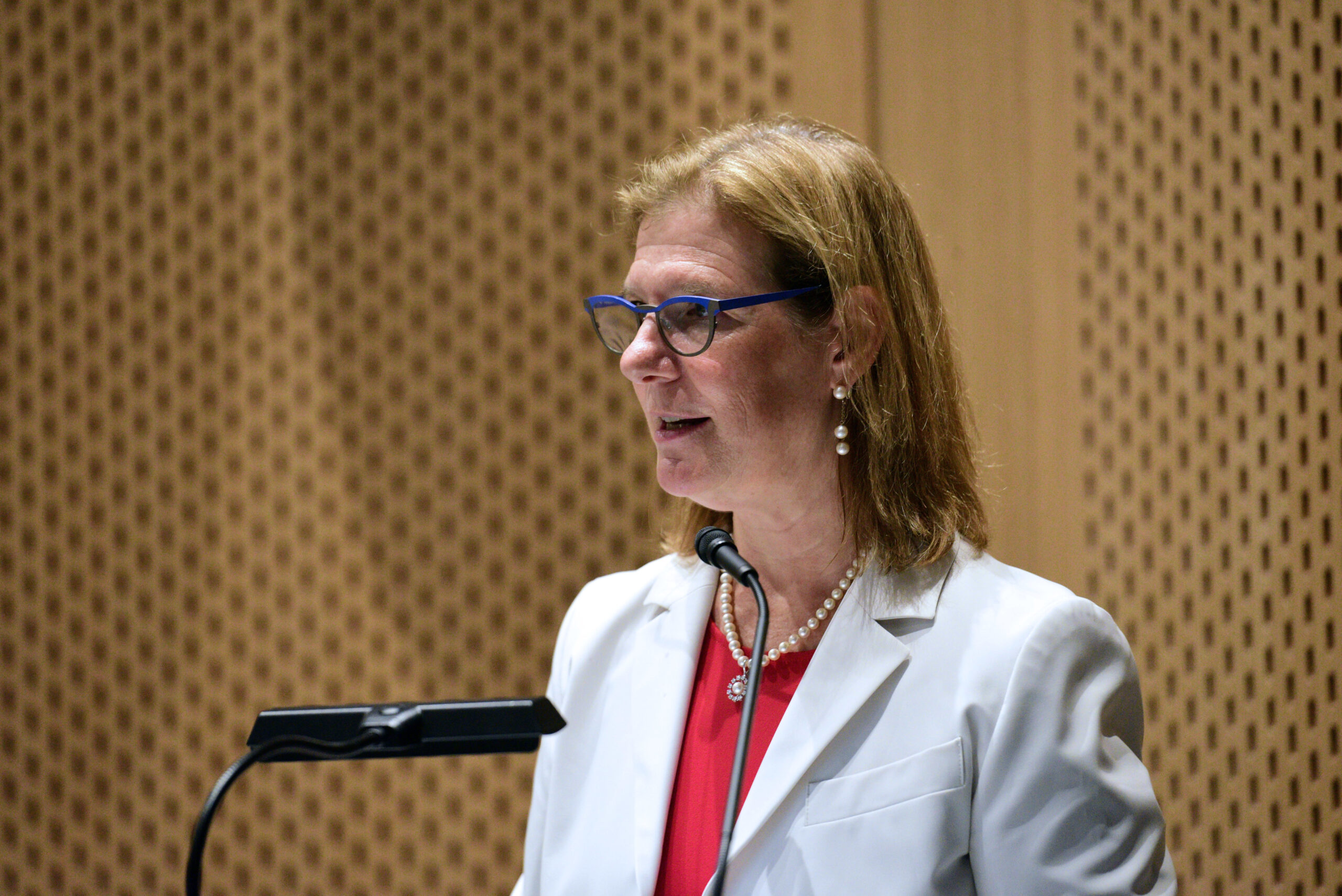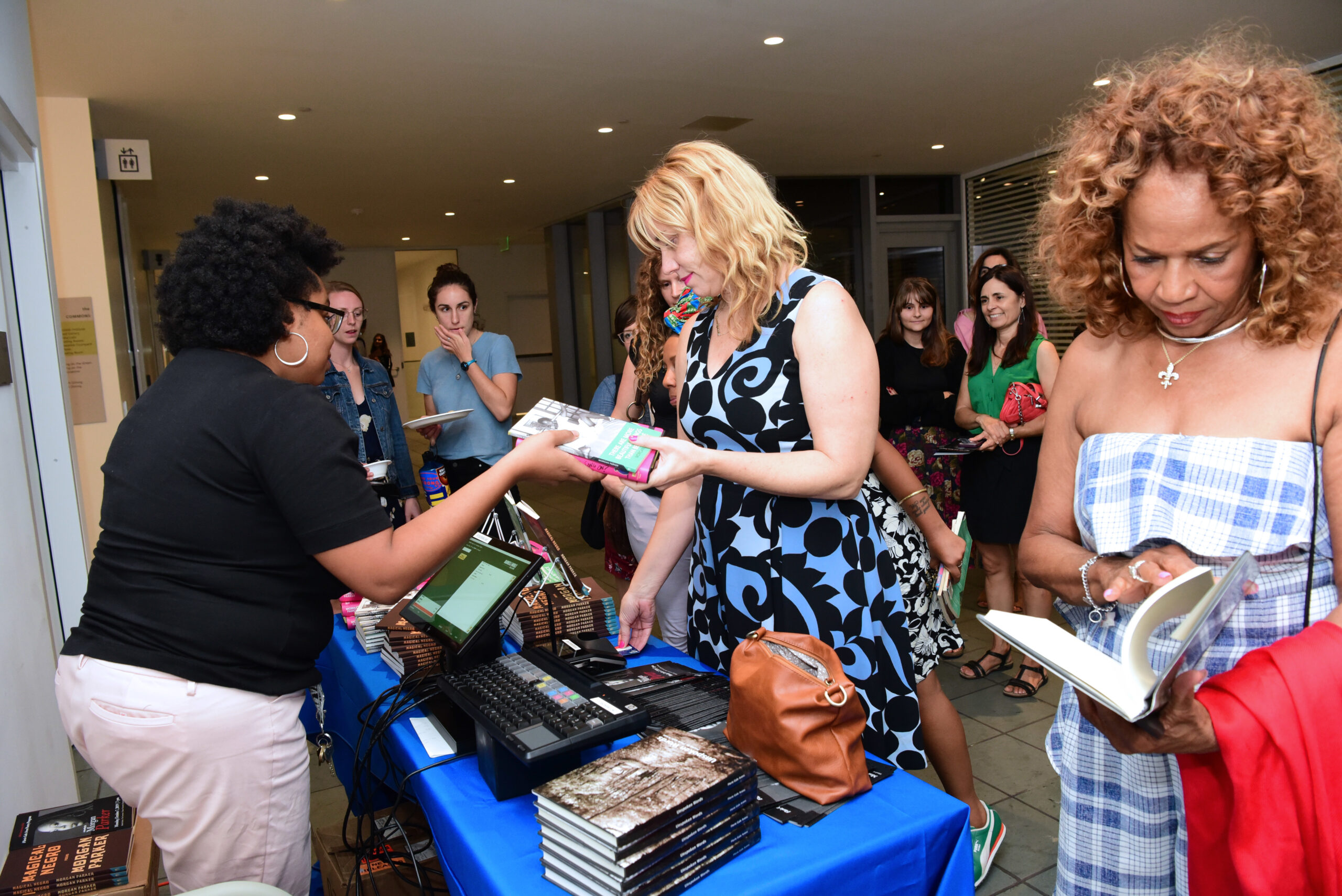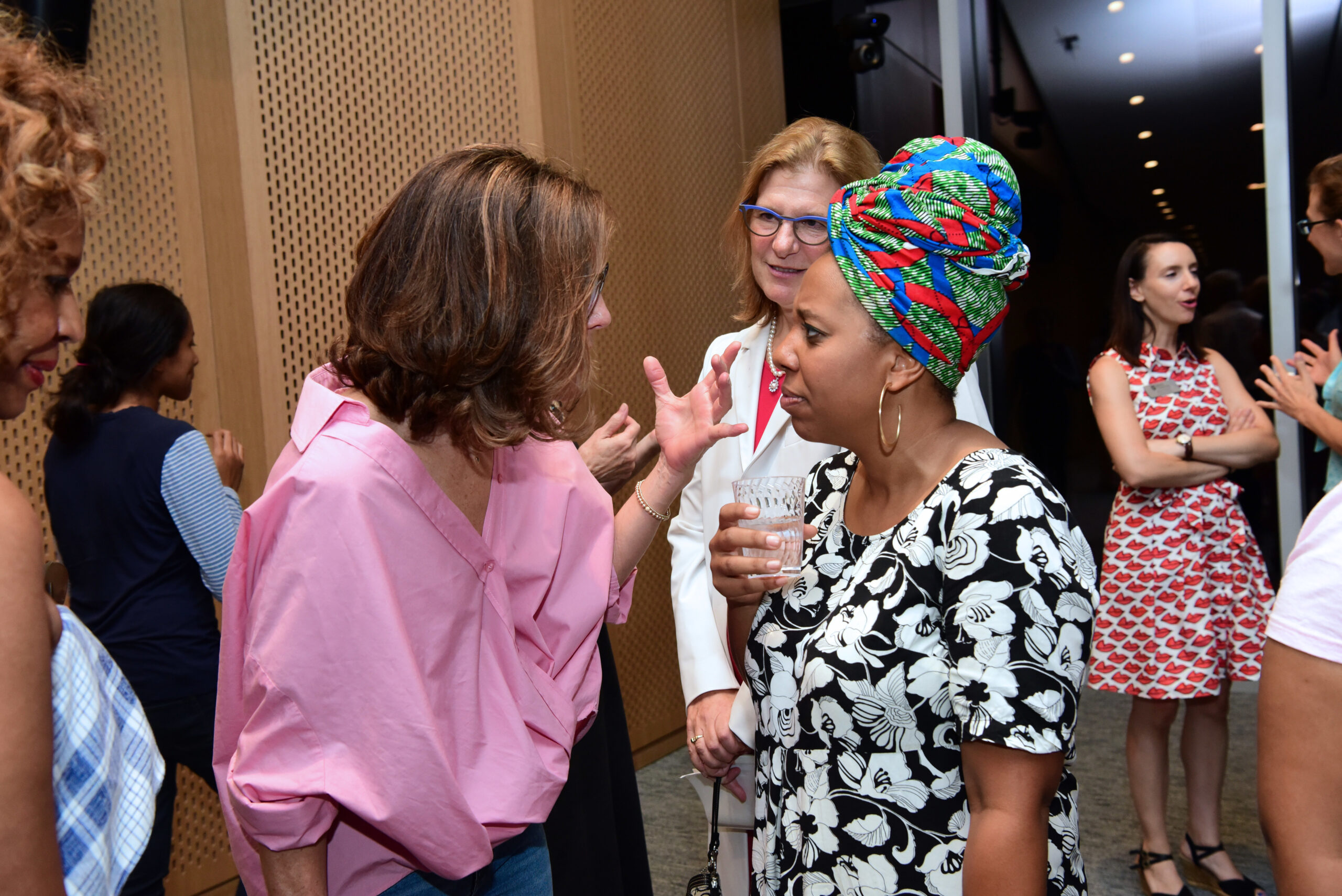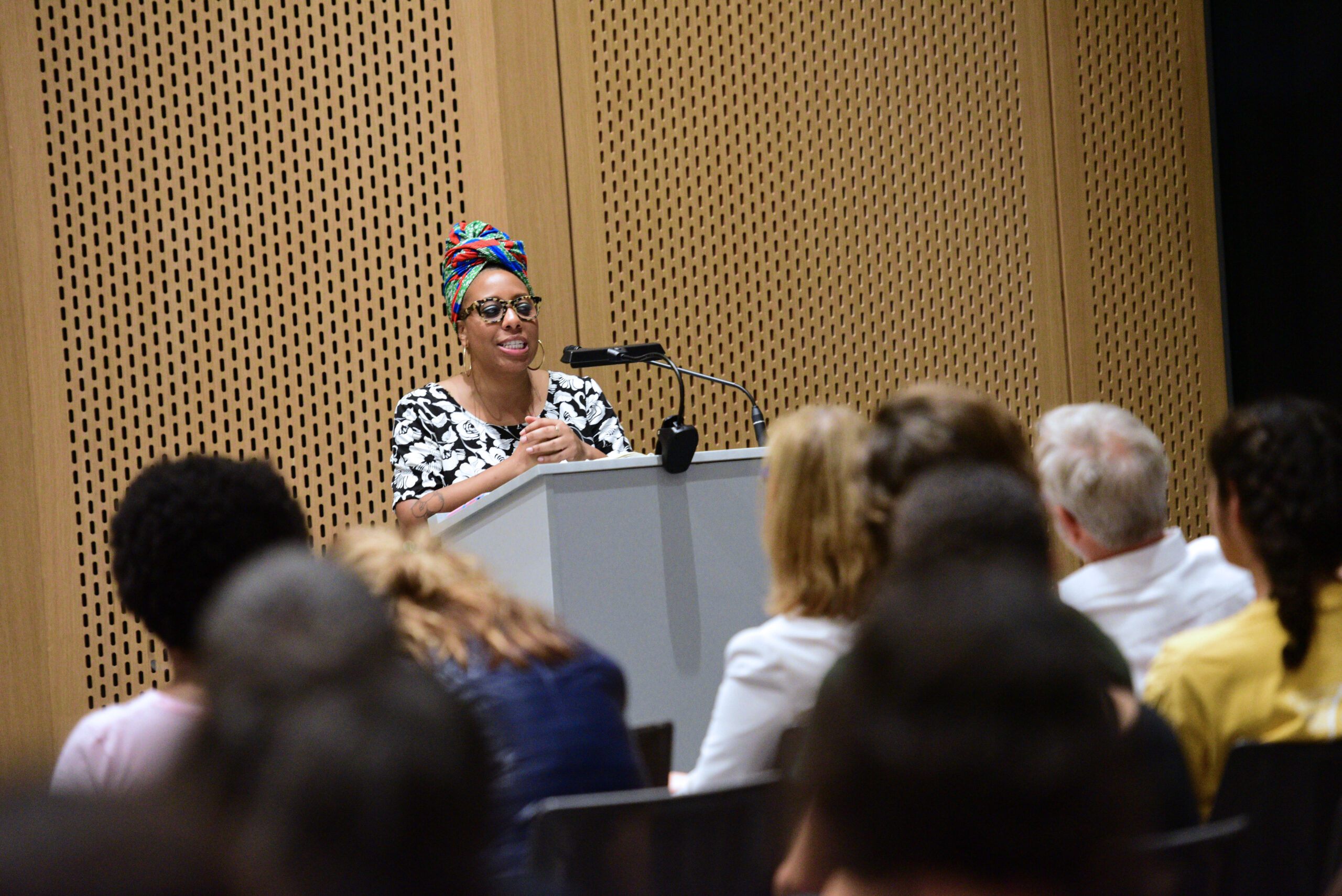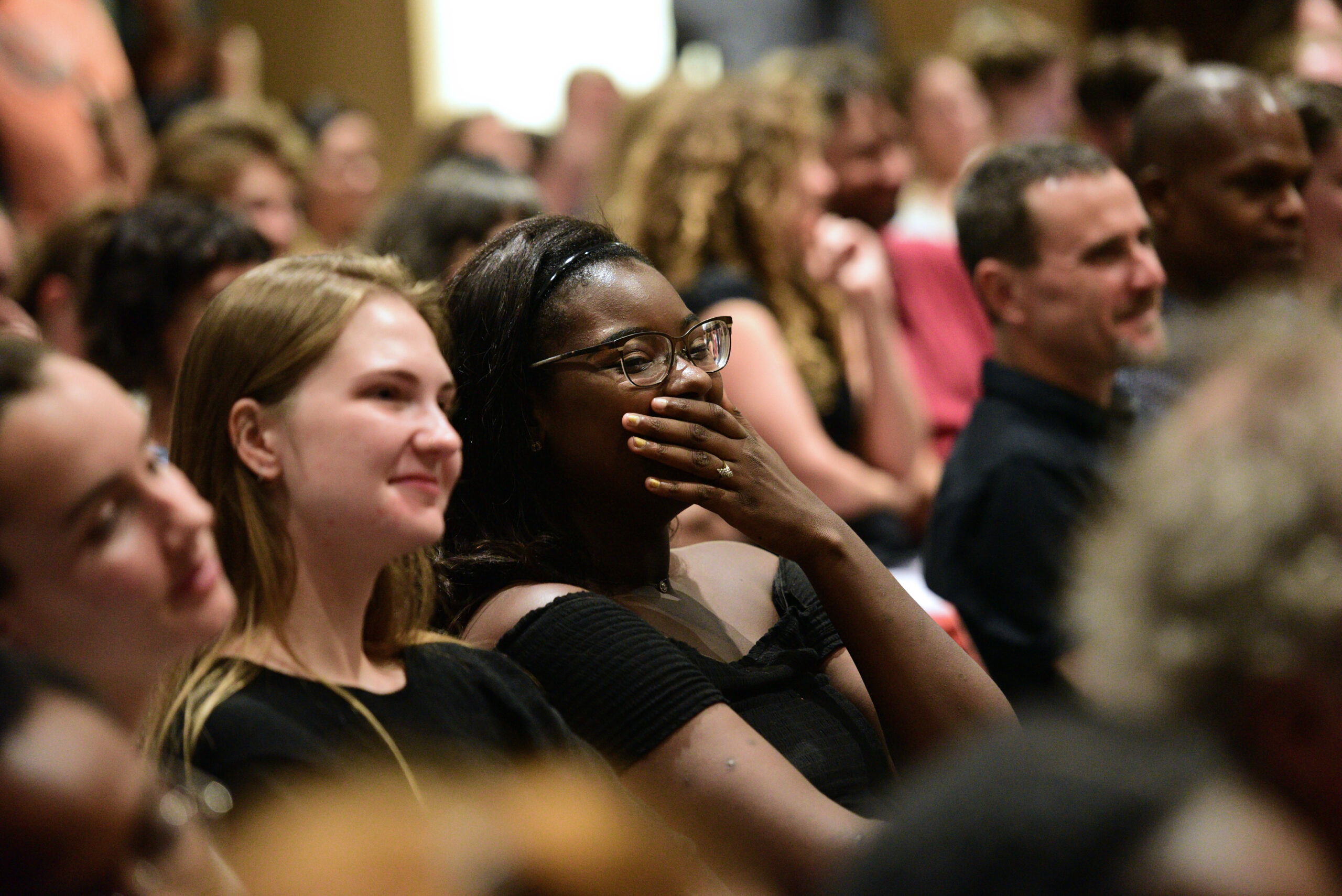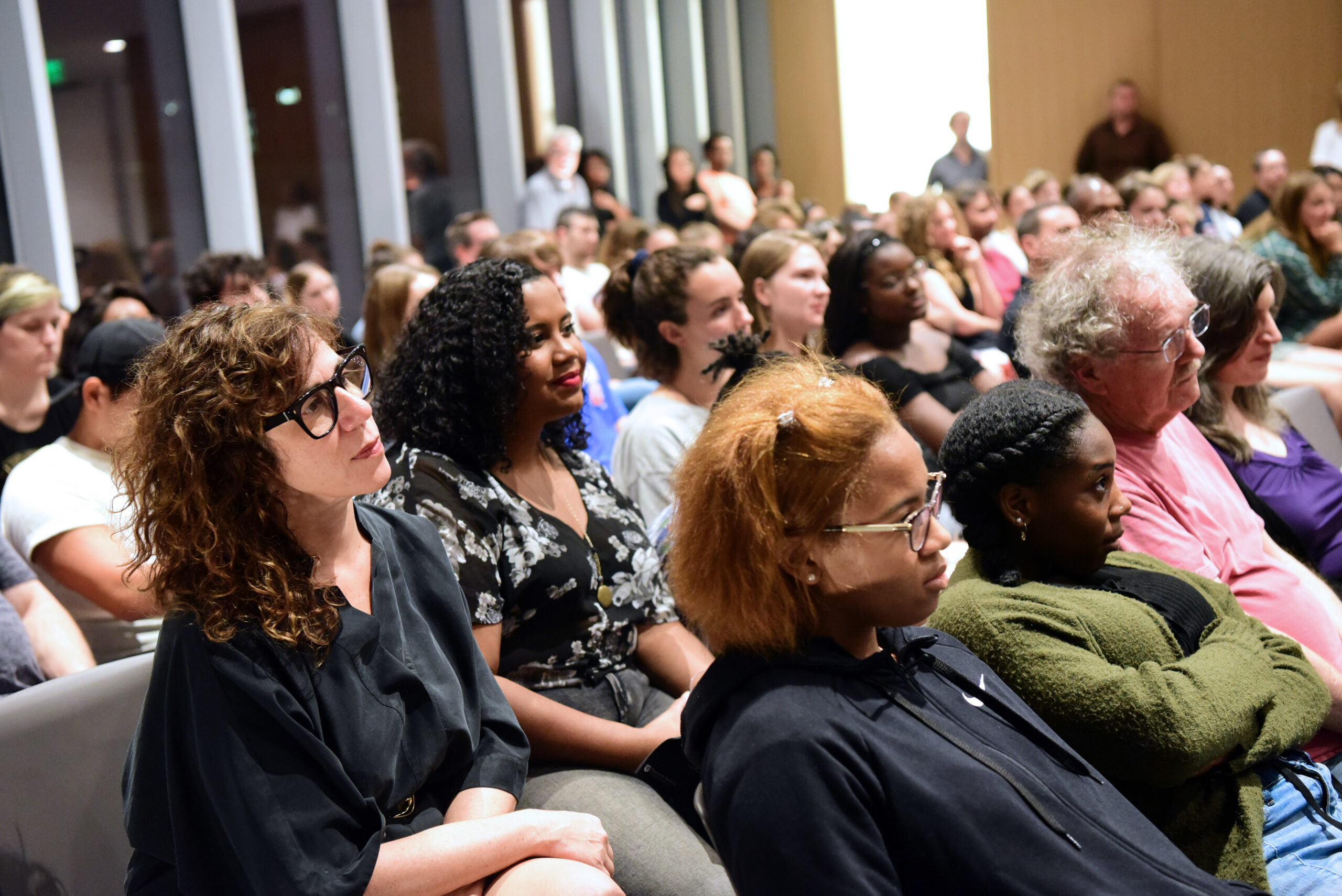Poet Morgan Parker on Black Womanhood in Body and Society
I Feel Most Colored When I Am Thrown Against A Sharp White Background: An Elegy
After Glenn Ligon after Zora Neale Hurston
by Morgan Parker
I feel most colored when I am thrown against a sharp white background.
Or, I feel sharp white.
Or, colored against.
Or, I am thrown. I am against.
Or, when white.
Sharp. Color. Quiet. Forgetting.
My country is a boat.
I feel most colored when I swear to god.
I feel most colored when it is too late. When I am captive.
When last thing on my mind is death…
Morgan Parker’s hour-long reading at Newcomb Institute on October 7, 2019, featured the poet’s personal take on loneliness, grief, white supremacy, ancestral trauma, hook up culture, objectification, and the everyday racism faced by Black Americans. With such heavy subject matter, the mood in Diboll Gallery was at times solemn, but Parker’s sharp wit was present both in her poems and in between readings, where she gracefully interwove humorous asides and bittersweet tales of her own college experience. The result was an intimate and vulnerable glimpse into the struggles and triumphs of a Black woman artist.
In addition to Magical Negro, Parker’s published works include There Are More Beautiful Things Than Beyoncé, Other People’s Comfort Keeps Me Up At Night, and the young adult novel Who Put This Song On? A debut book of nonfiction is forthcoming from One World/Random House. Parker received her Bachelor’s in Anthropology and Creative Writing from Columbia University and her MFA in Poetry from NYU. She is the recipient of a 2017 National Endowment for the Arts Literature Fellowship, winner of a 2016 Pushcart Prize, and a Cave Canem graduate fellow.
Since 1999, Newcomb’s annual Florie Gale Arons Poetry Program has brought a distinguished female poet to Tulane’s campus for a poetry reading and workshop. The program was established by the daughters of Florie Gale Arons (NC ’50) in 1999 in honor of their mother’s 70th birthday, and family and friends assure that it continues today in her memory. Mrs. Arons’ posthumously published collection of poetry, Unspoken Words, is available at the Newcomb Institute, the Tulane Bookstore, and independent bookstores.
Photos by Cheryl Gerber

